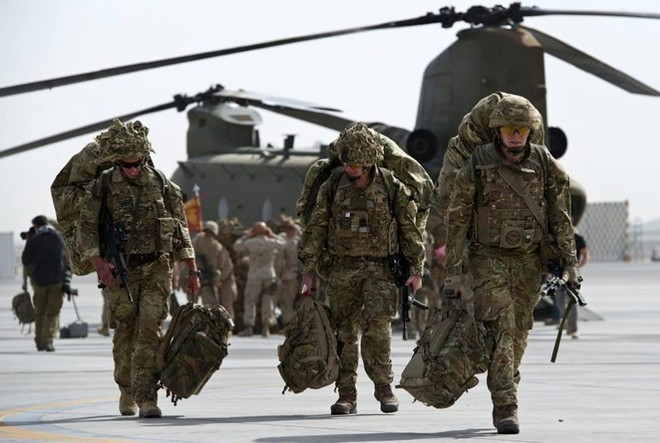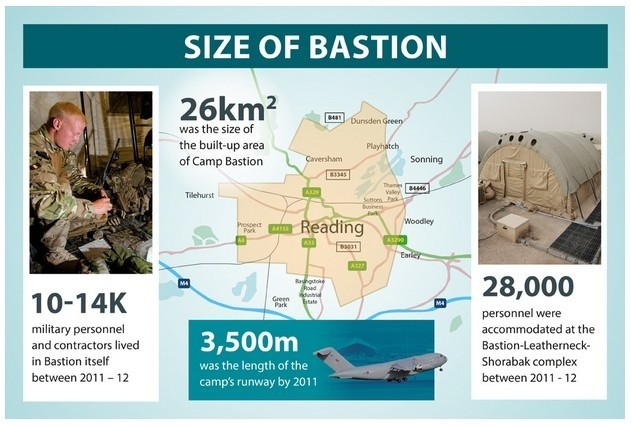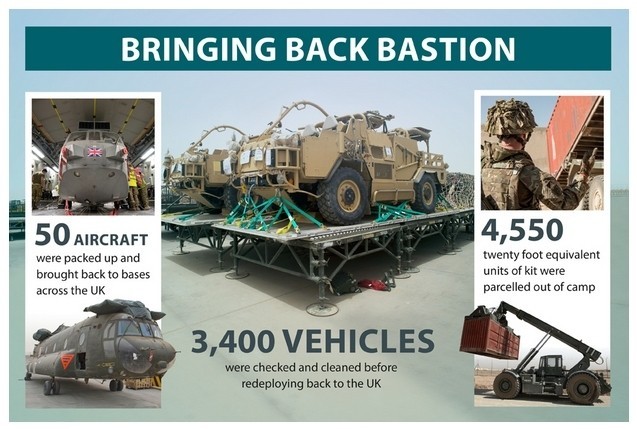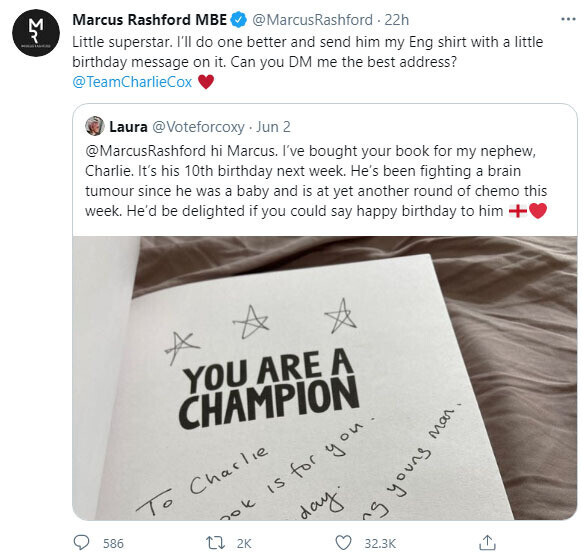 As British Troops finally leave and hand Camp Bastion over to the Afghan Army, it's time to reflect, what was it all about and wonder what the future will bring.
As British Troops finally leave and hand Camp Bastion over to the Afghan Army, it's time to reflect, what was it all about and wonder what the future will bring.
Will it be under Taliban control in 6 months as some suspect, making the whole adventure pointless, or will the Afghan Military continue and win the fight finally bringing peace to this tortured country?
Western Countries have paid a heavy price in blood and lives over the last 10 years, as well as financially. Are we happy with the results as we pull out, or were we just the latest chapter of occupying troops to leave the country with a bloody nose? After all the UK has been there before if you know your history.
It's fascinating when you look at the scale of the military operation at its peak:

Then there is the cost and complexity of bringing all the stuff back:

Images courtesy of the MOD
When you look at recent history and current events in Iraq, you have to wonder if Afghanistan will fare any better. I hope so, but I suspect there will be a lot of bitter squaddies wondering why we were there in the first place, and then not given enough resources to at least finish the job.
Maybe we have witnessed the last major deployment of ground troops to be used in an offensive combat role in a foreign country? I don't think public opinion would allow it again. Can you imagine an armoured brigade being sent off to fight ISIS or move into Syria?
The Ukraine has showed us that when an aggressor has a bigger stick, then we'll stick with diplomacy ![]() The US wouldn't even consider going into North Korea, who have arguably been a larger threat to the world order over the years than Iraq or Afghanistan.
The US wouldn't even consider going into North Korea, who have arguably been a larger threat to the world order over the years than Iraq or Afghanistan.
But I don't want to take it away from the men and women in the UK military who as always, have done a magnificent job, stepping up to the plate often with inadequate kit or making up for a shortfall of resources with ingenuity and cunning. Plus remember the 2,116 who were wounded in action, some horrifically and the 453 who paid the ultimate price.
Lets hope our troops who are now very few in number after repeated defence cuts, get a well earned break from conflict for a few years, and the current operations by the RAF in Iraq don't escalate!
Anyone got any views on Camp Bastion, Afghanistan or our role in the world today?






